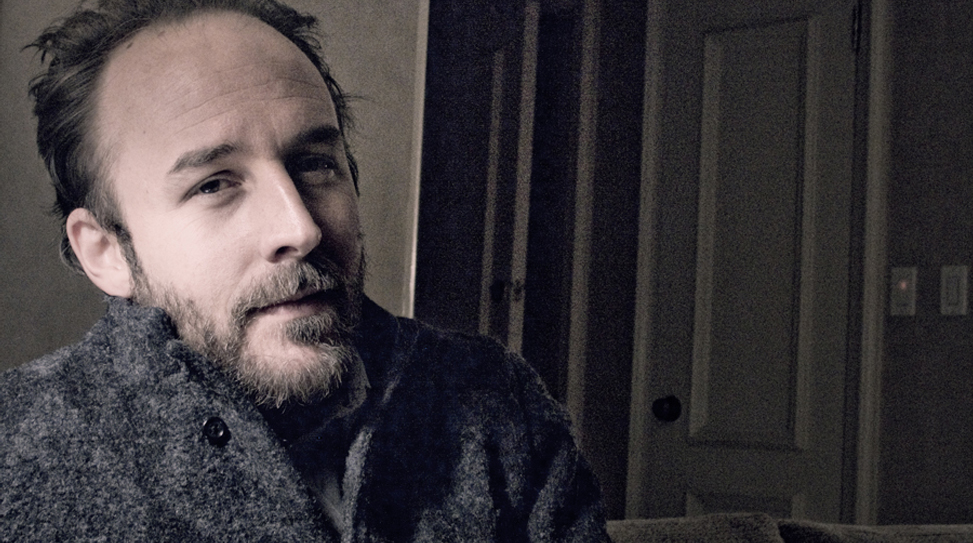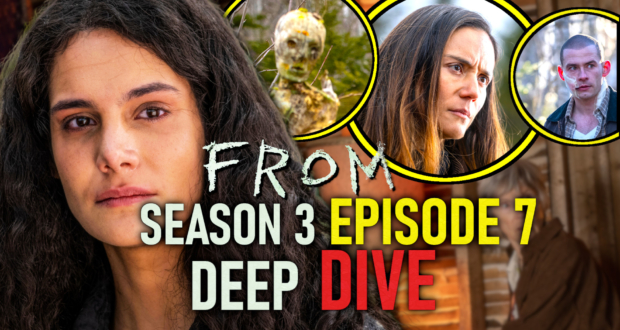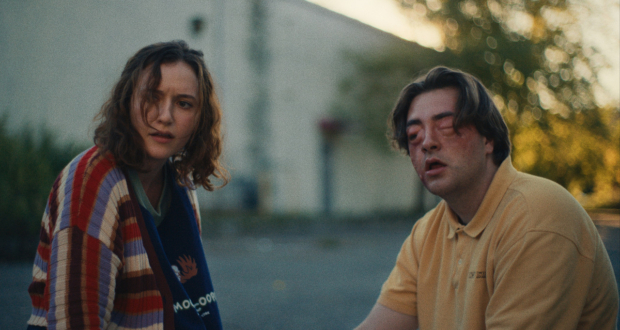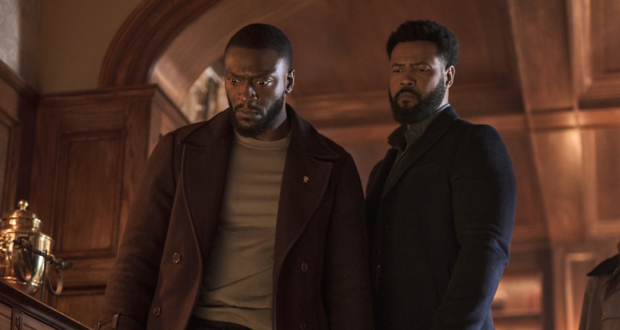During the time interacting with filmmaker Derek Cianfrance in the lounge of the Four Seasons Hotel in downtown Denver, he was glad to be home. One could tell Derek was in his element. Cianfrance was not overwhelmed by success yet was confident, but not arrogant about it. He dropped by his hometown of Denver a few weeks ago eager to discuss his new labor of love The Place Beyond The Pines the follow up to the Oscar nominated, indie hit Blue Valentine. He sat down to discuss his filmmaker journey, the narrative focus of The Place Beyond the Pines, and how audiences perceive movies with 21st century influences.
Colorado are where his roots are established. Cianfrance was born and spent most of his life here along with attending film school at Colorado University in Boulder. Being a Denver native and a successful filmmaker to attend the CU film school is something Cianfrance prides himself. When people rise to fame and success they can forget where they came from. Not Cianfrance. The mentors who shaped his style are avant-garde filmmaker Phil Solomon and the influential experimental artist Stan Brakeage provide some vivid memories of Cianfrance’s time studying film at Colorado University in Boulder.
“The most important lessons came from getting to observe these two great artists, both Phil (Solomon) and Stan (Brakhage),” he said. “Not only their work, but I got to observe the way they lived their lives and I got to spend time with them.”
He recalled the last time he saw Brakeage and the overall impact he had on him as a filmmaker.
“I saw Brakhage was outside of a used bookstore on Pearl Street (in Boulder, Colorado) and he said he wanted to give me something. He went inside and bought me Ray Carney’s John Cassavetes book. Cassavetes has been a huge inspiration to me,” he said.
Many people in Denver talk about making movies, but few actually put the work into it and even less are triumphant at doing so. Rarely does anyone in Denver have the degree of success Cianfrance has experienced especially crafting an dark, obscure movie into a breakout hit. This feature Blue Valentine wasn’t the perfect and was a journey for him to improve his storytelling skills into near perfection. His raw emotion was almost as much of a struggle as the characters experienced to get Blue Valentine made.
“I was at Sundance after college in 1998 with my first feature Brother Tied. It was great, but the film didn’t really get recognized by a lot of people,” he said. “I got twelve business cards there…three months later, I had a script written and I sent twelve scripts to these twelve different addresses and waited to get a response. I thought I would be shooting in three months, but three months came and I heard nothing.”
He continues on to discuss the perseverance of writing and refining Blue Valentine which he began writing on the day the Denver Broncos won the Super Bowl.
“I went back to work on it again and basically this cycle went on for twelve years—rewriting it, believing in it, sending it out—and either getting rejected or just ignored,” he said. “Until I finally got everything to a place where it became undeniable and I had built a crew of people around me who wanted to make this film just as much as me. And you know, I’m thankful I had to wait. Blue Valentine back when I was 24 years old would not have been what it is now without my life experiences.”
The determination, focus and hard work eventually paid off for Cianfrance in the end. Back in 2010, Cianfrance introduced his two sell out showings of Blue Valentine at the Starz Denver Film Festival. It was fitting homecoming for him since he traveled the elite festival circuit from Sundance to Cannes to Toronto screening his little movie while winning over the crowds. This was right before Blue Valentine went on to receiving an Oscar nomination for Best Performance by an Actress in a Leading Role for Michelle Williams raw and gripping performance. Blue Valentine faced an NC-17 battle with the MPAA and the $1 million budgeted movie grossed over $9 million at the box office.
To follow up such success could be stressful and challenging endeavor. The Place Beyond the Pines is an introspective, character drama about fate and consequences. The viewer might be thrown off as the movie takes them to unexpected places…which is a great thing. Three separate and distinct ACTS connect the narrative over time. This was similar to a Caucasian father-son version of Crash which is a simplification of a complex movie. It was the father-son link and the original sins of society that influenced the work of Cianfrance in creating The Place Beyond the Pines.
“When I wrote this movie, it very quickly came to be a film about legacy and lineage, and about this fire that gets passed between generations. It’s a very Darwinistic film.”
“I was thinking about everything that was passed on to me and everything I was going to pass on to my kid. I really just wanted my new son to come into the world clean and I didn’t want him to have any of my sin or bad choices. I just started thinking about the larger story of America and its tribes. You don’t have a choice into the world you’re born and I started thinking about the kind of ruthlessness and brutality that’s occurred in this country and that it was founded on.”
The expectations of an audience can sometimes not be meant. Cianfrance wants the viewers to deal with the reality portrayed on screen.
“I want the audience to live with choices in the movie and have characters live with consequences to their choices. The whole film is all build up to violence with guns and how its aftermath echoes that.”
Appeasing a fickle, but easily amused audiences are difficult to gauge. The trailer to The Place Beyond the Pines portrays the movie as something Cianfrance never intended. It isn’t his fault when a studio has to market a work of arts. Audiences who show up expecting to be swooned by a Ryan Gosling and Bradley Cooper cop chase movie will be disappointed especially uninformed viewers I have interacted with who labeled Ben Affleck’s directorial style as “gritty art house.”
“I know Pines is a difficult film to advertise, because how do you condense this story? I think what Focus Features did I like, but I’m no expert in that. But as a filmmaker, I care about audience reaction because I am an audience member. I know that my films are divisive and that there’s lots of love and lots of hate for them. I’m putting out my specific vision into the world and sometimes people like it and sometimes people don’t. That’s fine with me.”
Cianfrance had a wonderful critique of the current management of critical consensus that dominates its influence over our movie watching times:
“I love criticism. I love reading the positive and negative stuff. Everything nowadays with criticism is about aggregated scores. It’s about the ‘toma-meter.’ It creates a democracy of critics, which does make some of them shout louder than others. But it’s all good. I enjoy it all.”
The Place Beyond the Pines is playing in select theaters. I sat in on a roundtable interview with other Denver movie journalists including Chris Utterback of The Westword and Joaquin Villalobos of Mile High Cinema.
























